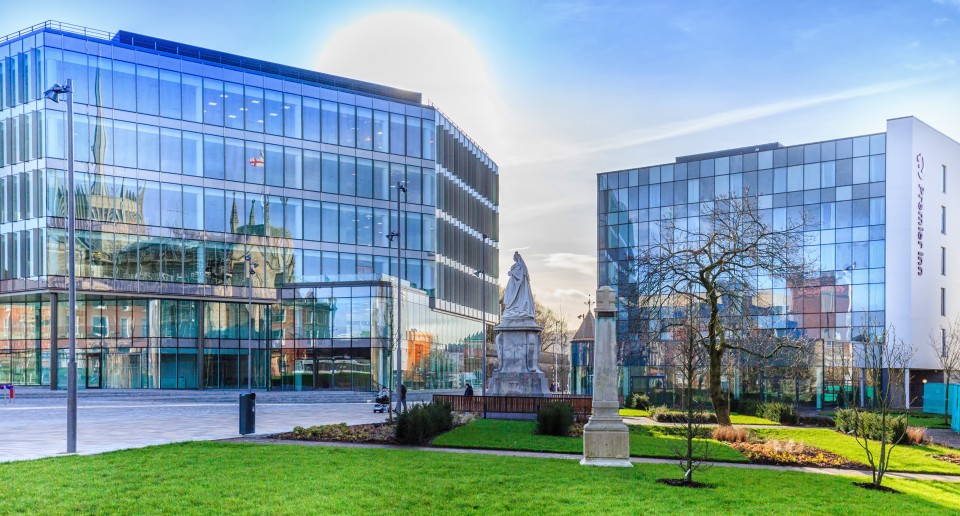
Published Wednesday 20 July 2016 at 10:34
Business leaders met to hear about the benefits of doing business in Blackburn and Darwen.
The breakfast debate at Blackburn Cathedral featured two panel discussions about investment in town centres and road infrastructure, new investment opportunities and schemes to ensure young people have the right skills and are workplace-ready when they leave education.
The event was hosted by North West Insider Magazine and sponsored by Blackburn with Darwen Council and Blackburn College.
The Council’s director of Planning and Prosperity, Brian Bailey, described the borough’s Plan for Prosperity 2014-20 as a ‘statement of ambition and aspiration’ and said the arrival of housing developers such as Wain Homes on site in Blackburn was a sign of growing confidence in the local economy.
He said:
We have seen significant investment in our road infrastructure through Pennine Reach and in our town centres – the new Cathedral Quarter is the jewel in Blackburn’s crown.
Our challenge now is to build on these physical changes and be ready to take advantage of any additional powers that will benefit our prosperity and improve quality of life for local residents. We have 80 commercial and housing sites coming forward and we’ve got 3,000 new houses in the planning – five years ago, a figure like that would have been unheard of.
Other panels members were Nicola Clayton from Blackburn College, Laurie Thomas from Vision Support Services, Mike Damms of the East Lancashire Chamber of Commerce, Graham Haworth of Crown Paints and Peter Birch of Pets Choice.
Mike Damms talked about the ‘tremendous manufacturing capability’ of the area, telling delegates:
“The world’s your oyster. We have an amazing array of companies trading all over the world.”
Laurie Thomas described Blackburn as a ‘hotbed of talent’, saying:
I’ve never had any problem recruiting. I’ve always been able to find the right quality people in Blackburn with the right quality experience.
Nicola Clayton said the College is addressing the skills challenge by working with local businesses to identify their needs over the next five, 10 and 15 years.
She added:
There is strong support locally for apprenticeships and many organisations have large apprenticeship programmes, including East Lancashire Hospitals Trust, the Council, Herbert Parkinson and WEC. It means people can be employed by and based in business and their skills can be developed as the business grows.
Filed under : Brian Bailey | Cathedral Quarter
